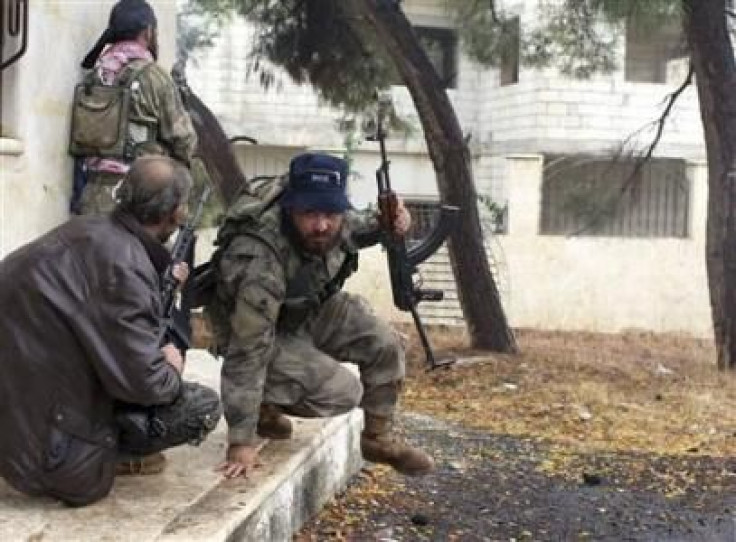Britain And France Mull No-Fly Zone, Intervention In Syria

Britain announced it may be sending Royal Navy ships to enforce a no-fly zone in Syria, the Evening Standard reported.
Prime Minister David Cameron had been mulling this move since the Syrian conflict started 19 months ago and was expected to discuss the possibility of establishing a no-fly zone with Defense Minister Philip Hammond on Wednesday, the Telegraph reported.
Cameron spent last week visiting visiting refugee camps in Jordan, where he observed that "what we've done so far is not working."
Earlier this week, Chief of Defense Staff General Sir David Richards told the BBC he thought that in the winter "the humanitarian situation will deteriorate" and that "there's ultimately no military reason why one shouldn't [intervene]."
Intervention appears to be what is ramping up. The Evening Standard said that British aircraft carriers and destroyers in the Mediterranean would most likely be deployed, however "any military action to topple President Bashar Assad is unlikely without U.S. involvement," columnist Nicholas Cecil wrote.
The U.S. has not indicated a willingness to get involved on the ground yet in Syria, but following a call on Saturday from the Syrian opposition for more Western support, France announced Wednesday that they were in discussions to send arms to the Free Syrian Army, the BBC reported.
France was the first country to officially recognize the leadership of the opposition party, the Syrian National Council. The U.S. and UK have expressed their support but have not officially recognized the coalition as the legitimate government. France and the U.S. have also been some of the largest financial backers of the Free Syrian Army but have stopped short of outright arming the rebels.
For now, it may stay that way. "For the moment ... there are no arms being delivered from the European side," the French foreign minister told France's RTL radio, the BBC reported, citing the danger of further inflaming the situation with more weapons.
If a no-fly zone is imposed, however, it could quickly give way to ground involvement by Western troops. Frederic Wehrey, a senior associate at the Carnegie Endowment for Peace and a reserve Lieutenant Colonel in the U.S. Air Force, told FM4 ORF Austrian Radio on Tuesday that the idea of a no-fly zone can be seductive but opens up a new host of problems and more or less commits a country to getting involved on the ground.
"I like to call no-fly zones the gateway drug to regime change," Wehrey said, "because once you put these in, it's very difficult to say when have you achieved your goal? You kind of become wedded to events on the ground.
"It's an admirable impulse to go and protect a civilian population that is at risk," he continued. "But there's a whole set of other questions that you have to ask, and it invariably involves some sort of ground intervention in some way. It can be a very slippery slope."
If this chronology of events looks familiar, it's because before the West intervened on the ground in Libya in 2011, there were calls for and serious talk of a no-fly zone over the country. France was the first country to recognize the opposition party, the Libyan National Transitional Council, and was also the first Western country on the ground in Libya, fighting against Moammar Gadhafi's forces.
But a Syrian intervention might not have the mostly happy ending that the Libyan campaign had. "The opposition we know has been penetrated by these extremists," Wehrey said. "I think the real nagging question now in U.S. circles is, even if there is a consensus to intervene, on whose side are we intervening? Our intervention would perhaps aggravate the situation where more jihadists feel compelled to join the fight to fight us. That's what we saw in Iraq. If we go in, we change the dynamic of the conflict where jihadists from around the region where the jihadists say, 'Hey, the Americans are here. Let's go to Syria to fight them.'"
Wehrey finished his statement by saying U.S. President Barack Obama needs to focus less on intervening and more "on the day after the fall of the [Assad] regime."
© Copyright IBTimes 2024. All rights reserved.












